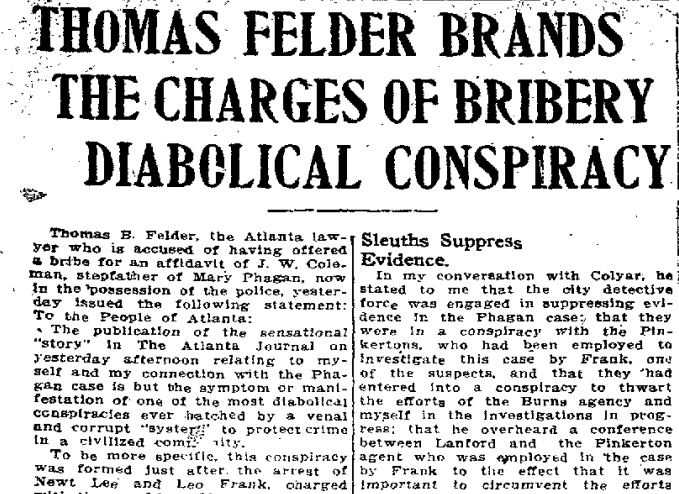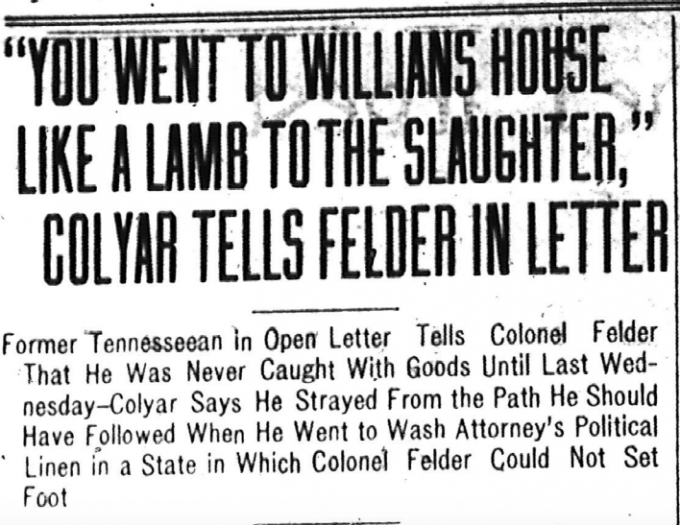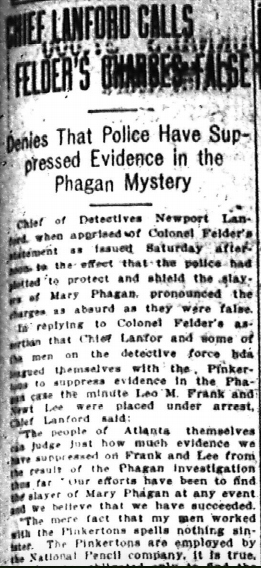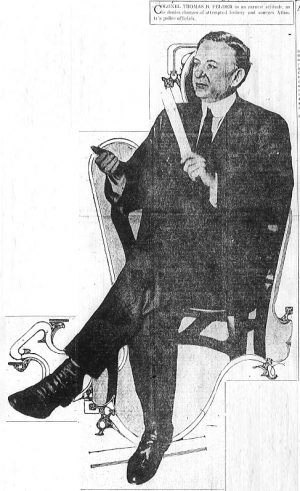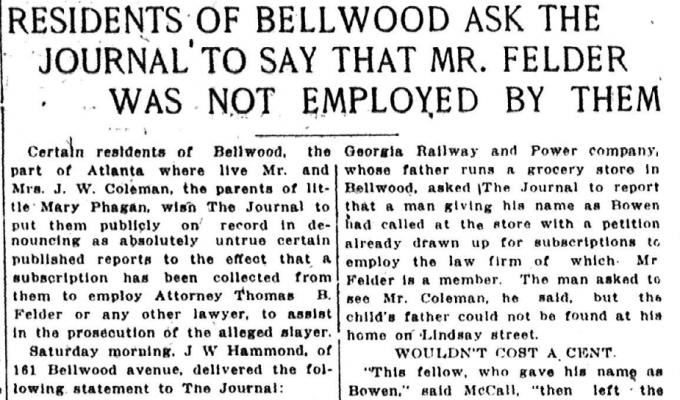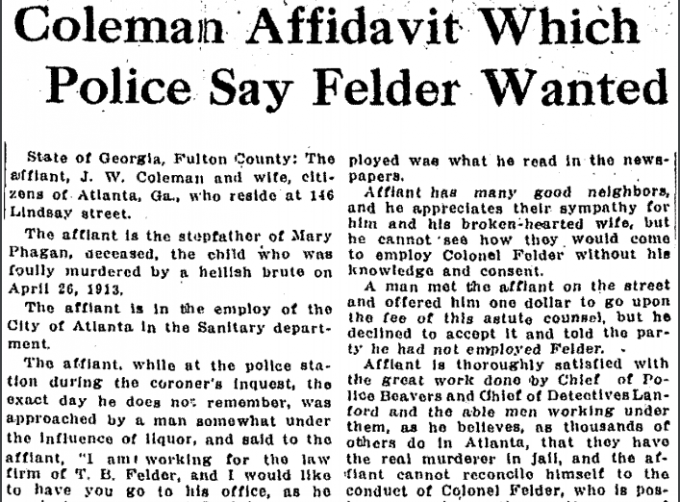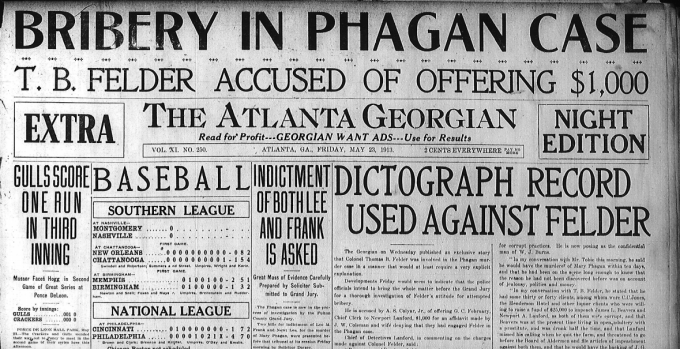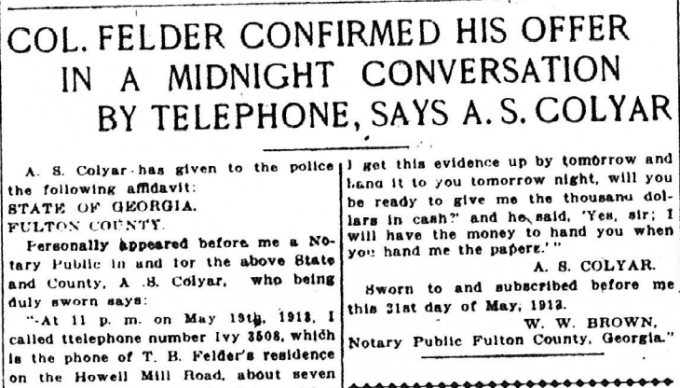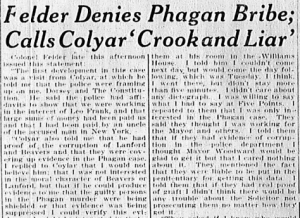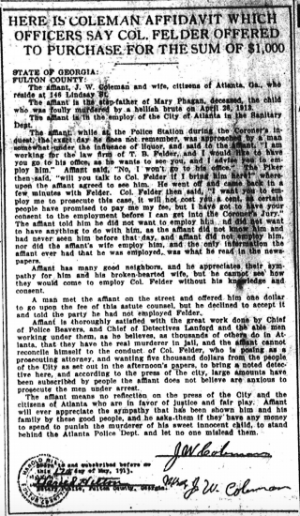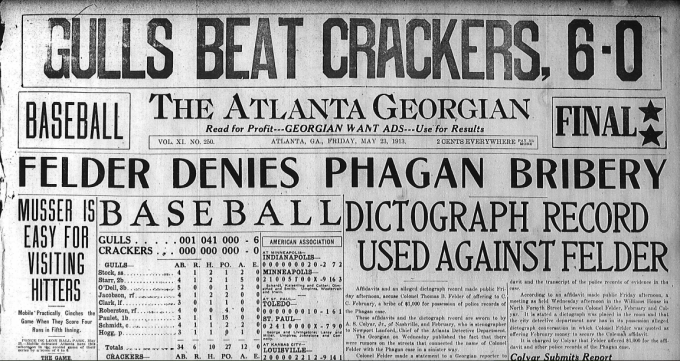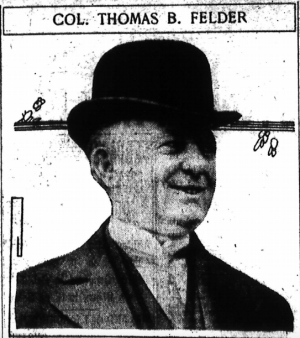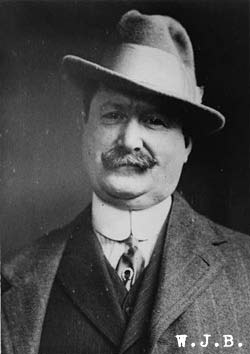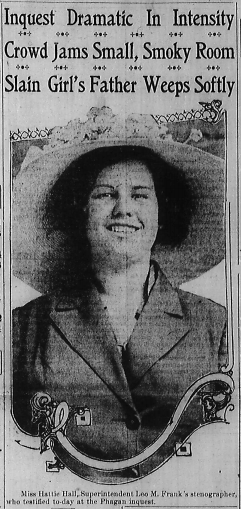
Another in our series of new transcriptions of contemporary articles on the Leo Frank case.
The Atlanta Journal
Tuesday, June 24, 1913
Judge Names Date After Statement From Reuben R. Arnold, In Which He Said Trial Would Last Two Weeks
DEFENSE TAKES STEPS TO GET STATE’S EVIDENCE
Subpenas Duces Tecum Issued, Demanding Production of Affidavits and Popers [sic] in Possession of Solicitor
Leo M. Frank, accused of the slaying of Mary Phagan, will not be tried before superior court Judge L. S. Roan next Monday. The judge in a conference with attorneys at 2 o’clock Tuesday afternoon formally set the trial for Monday, July 28, and no attempt to reopen the questions of arraignment will be made. Both the prosecution and the defense agreed to this date.
Any attempt made to put Frank on trial on next Monday was silenced when Reuben R. Arnold, speaking for the defense, said flatly that the trial would take at least two weeks. The assurance that the trial would last some time and the fact that it likely would be held in the stuffy little court room in the Thrower building, if scheduled Monday, practically caused the postponement.
Solicitor Dorsey, for the state, and Luther Z. Rosser and Reuben R. Arnold, for the prosecution, were summoned to the court house by Judge Roan at 3 o’clock and a discussion of the matter was opened.
SOLICITOR ANNOUNCED READY.
Solicitor Dorsey announced that he was ready and made the declaration that his witnesses would not take more than two days at the outside. He said if the defense had any he didn’t think they would take any longer.
This remark brought a grunt from Luther Z. Rosser and the Arnold statement that the trial would take two weeks.
“We have the witnesses,” both of the lawyers for the defense asserted.
Both Attorneys Rosser and Arnold told the court that in the event of a postponement of the case for Monday that they desired it to go over until after the week of July 14, when both would be engaged in the trial of Mattie Flanders in Swainsboro. Mr. Rosser represents the defense of Mrs. Flanders and Mr. Arnold the prosecution.
This came when Solicitor Dorsey suggested that the case be tried on July 7.
Judge Roan, in fixing July 28 as a date suitable to all concerned, said that there would be no break in the week, as there would with July 4, that a good court room for the trial could be obtained about July 13, that the jail could be cleared of routine cases by that time and previously made engamenest [sic] would not be interrupted.
All lawyers concerned were in court and the judge asserted that lack of preparation could not be offered as an excuse when the case was called on July 28.
The attorneys for Leo M. Frank Tuesday afternoon secured subpoenas duces tecum to be served on Chief James L. Beavers, Chief N. A. Lanford, Solicitor Hugh M. Dorsey, Assistant Solicitor E. A. Stevens, Hary [sic] Scott, of the Pinkertons; City Detectives John Black, Pat Campbell and J. N. tSarnes [sic], and Secretary of Chief Lanford, G. C. Febuary, calling upon them to produce in court Monday June 30, or any other day that the Frank case might be on trial, all affidavits or statements secured from Jim Conley, the negro sweeper; Monteen Stover and Grace Hix. Continue Reading →



 Another in
Another in 